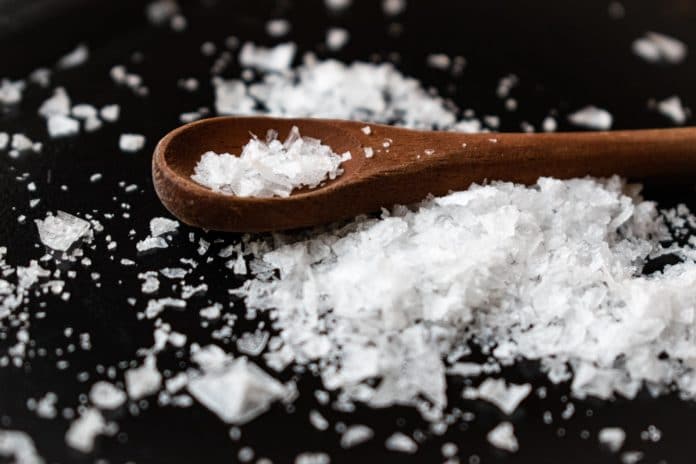The Western diet is rich in salt, which poses various health risks.
In a new study by the University Hospital Bonn, scientists fed a high-salt diet to mice and found that the mice suffer from much more severe bacterial infections. When tested on humans, an additional six grams of salt per day also showed pronounced immune deficiencies.
The WHO strongly suggests that five grams of salt a day is enough amount that adults should consume. It corresponds approximately to one level teaspoon.
But the data from Robert Koch Institute suggest that Germans exceed this limit: on average, men consume ten, women more than eight grams a day.
Prof. Dr. Christian Kurts from the Institute of Experimental Immunology at the University of Bonn said, “Meanwhile, we reach for the salt shaker much more than is good for us.”
“Sodium chloride, which is its chemical name, raises blood pressure, and thereby increases the risk of heart attack or stroke. But not only that: We have now been able to prove for the first time that excessive salt intake also significantly weakens an important arm of the immune system.”
Past studies have suggested that infections with certain skin parasites in laboratory animals heal significantly faster if these consume a high-salt diet: The macrophages, which are immune cells that attack, eat and digest parasites, are particularly active in the presence of salt. Even physicians also said that sodium chloride has a generally immune-enhancing effect.
But, this new study contradicts past studies.
Katarzyna Jobin, a lead author of the study, explained, “Firstly, the body keeps the salt concentration in the blood and the various organs largely constant. Otherwise, important biological processes would be impaired. The only major exception is the skin: It functions as a salt reservoir of the body. This is why the additional intake of sodium chloride works so well for some skin diseases.”
“However, other parts of the body are not exposed to the additional salt consumed with food. Instead, it is filtered out by the kidneys and excreted in the urine. And this is where the second mechanism comes into play:”
“The kidneys have a sodium chloride sensor that activates the salt excretion function. As an undesirable side effect, however, this sensor also causes so-called glucocorticoids to accumulate in the body. And these, in turn, inhibit the function of granulocytes, the most common type of immune cell in the blood.”
“Granulocytes, like macrophages, are scavenger cells. However, they do not attack parasites, but mainly bacteria. If they do not do this to a sufficient degree, infections proceed much more severely.”
“We were able to show this in mice with a listeria infection. We had previously put some of them on a high-salt diet. In the spleen and liver of these animals, we counted 100 to 1,000 times the number of disease-causing pathogens.”
The study on human trials found that excessive salt intake also resulted in increased glucocorticoid levels. What’s more, analyzing blood samples after one week, scientists found that the immune cells coped much worse with bacteria after the test subjects had started to eat a high-salt diet.
Journal Reference:
- A high-salt diet compromises antibacterial neutrophil responses through hormonal perturbation. DOI: 10.1126/scitranslmed.aay3850
